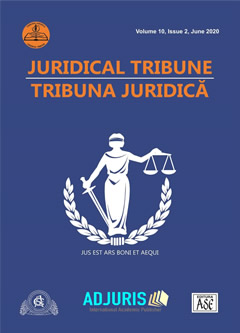Revisiting the franchise contract
Revisiting the franchise contract
Author(s): Sónia de CarvalhoSubject(s): Law on Economics, Commercial Law
Published by: Societatea de Stiinte Juridice si Administrative
Keywords: franchising; distribution; franchise; contract;
Summary/Abstract: Commercial distribution corresponds, in the economic process, to the activity of intermediation between supply and demand, through which the producer, using intermediaries, manages to deliver products and services to consumers, while at the same time seeks to know and satisfy the demands of the latter. Within the industrial revolution, mechanization combined with new production techniques, allowed production directed towards self-consumption to be replaced by surplus production, on a large scale, which created the need to dispose of goods. With the advent of industrial capitalism, the industrial enterprise started to assume the central role of the economic system, with trade being relegated to a secondary role. The producers, in view of the surpluses resulting from mass production, began to feel the need to resort to intermediaries who would assume the distribution of the products in several markets, namely, in distant markets. Distribution gradually begins to become independent from the production, presenting itself as an auxiliary activity for the industry. In this sense, commercial distribution is no longer centred on the physical distribution of products, but takes on a series of activities aimed at adjusting supply to demand, which includes attracting customers, providing after-sales services, financing and risk-taking, consultancy, promotion and advertising, among others. These activities are articulated in more or less complex processes. Thus, distribution begins to represent the main means to increase the company's profits, becoming the object of study and deepening. However, given the insufficiency of the occasional purchase and sale contracts to cover the web of intricate obligations required in the distribution of goods to the various operators of a distribution chain, leading to an undesirable increase in distribution costs, there was a need to create more sophisticated contractual schemes. In contracts, such as franchising, it is possible to witness the productive integration of the distributor into the producer network, accompanied, in different degrees of intensity, by the attribution and recognition of intellectual property rights. This contract was associated, both in the United States, a country where it first appeared, and in Europe, to periods of economic recession, in which excess supply in face of demand will compel producers to conquer new markets. This objective, owing to the difficulties of the producer to assume the distribution of the products, given the lack of capital, characteristic of post-recessive times, will be achieved through the delivery of the distributive function to the distributor, thus seeking, in accordance with the principle of division of labour, achieve greater efficiency. The crisis currently experienced worldwide following the Pandemic COVD 19 and the role that this contract can play in the economic recovery, makes it imperative to revisit this contract in order to approach its modalities, advantages and the legal framework.
Journal: Tribuna Juridică
- Issue Year: 10/2020
- Issue No: 3
- Page Range: 466-492
- Page Count: 27
- Language: English

